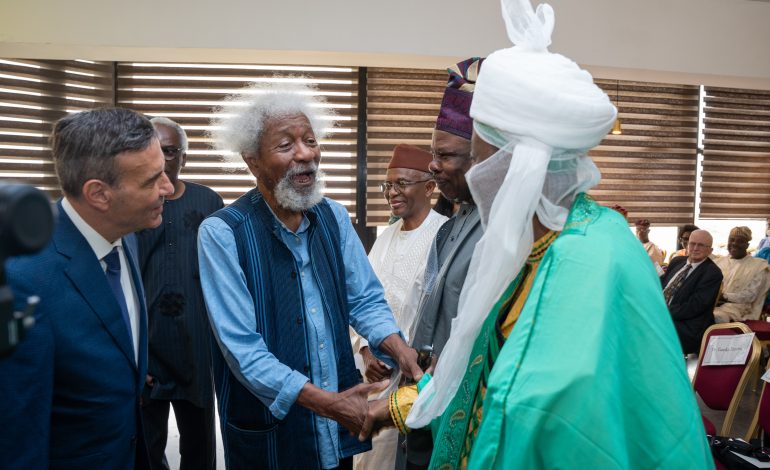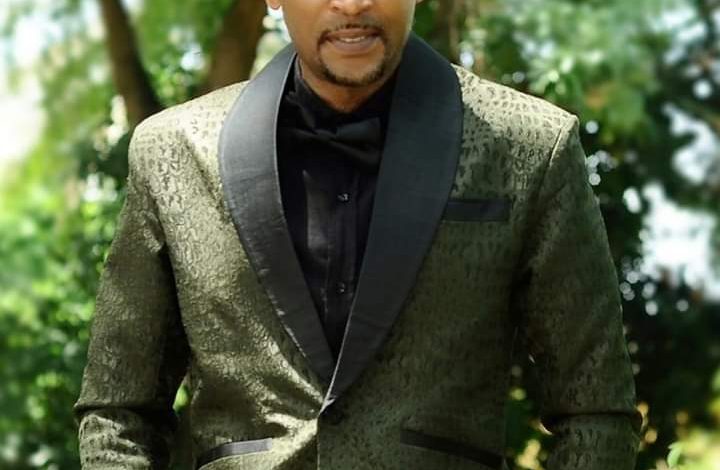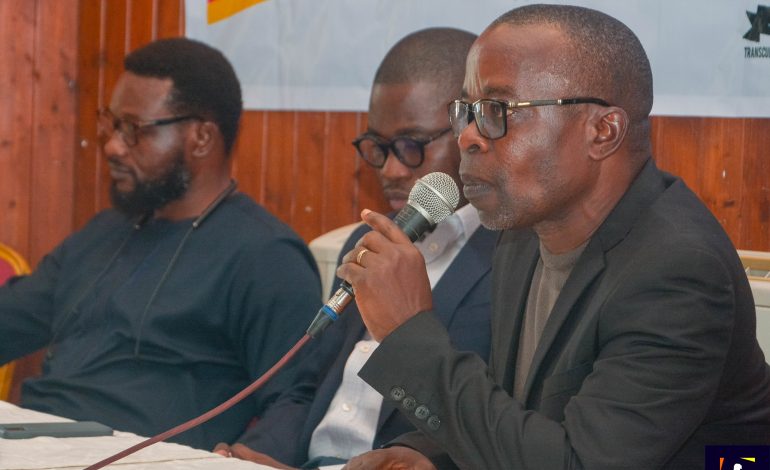Nigeria, Africa teach the world values of kindness, humility, generosity, says Nigerian-Lebanese, Jafaar

* Soyinka, Sanusi II, Olojede, Mbanefo, others praise Jaafar for autobiography
By Godwin Okondo
IT was a day of nostalgia, memories and humour as guests showed solidarity with the author at the launch of African Odyssey of a Lebanese Emigrant: An Autobiography of Sorts by Nigerian-born Lebanese businessman and philanthropist, Habib Jaafar. The launch took place at Eko Hotel and Suites, Victoria Island, Lagos, on Saturday, September 23, 2023. Those who attended included Prof. Wole Soyinka, Alake of Egbaland, Oba Adedotun Aremu Gbadebo III, former Emir of Kano, Muhammadu Sanusi II, former Governor of Kaduna State, Nasir el-Rufai, former Governor of Ogun State, Senator Abikunle Amosun, Nigeria’s former Ambassador and Permanent Representative to the United Nations (UN), Chief Arthur Mbanefo, and a host of others.
The book received a lot of accolades for its beautifully written content, with Soyinka, who chaired the event, saying the book has compelling message for Nigerians, because of the similarities between Nigeria and Lebanon. Also, Pulitzer Prize-winning journalist, Mr. Dele Olojede, who anchored the programme, described Jafaar, as a literarily cultured man who was masquerading as a businessman.
For Soyinka, Jafaar’s book bears him out in his unrelenting crusade for a humanistic world devoid of extremism of all types, particularly religious extremism that is rife in Nigeria, and which discounts other human beings on account of the religion they practised. Soyinka had recently tangled with the Emir of Ilorin, Ibrahim Sulu-Gambari, who the Nobel laureate accuse, not only of religious extremism, but actively promoting among ignorant folks he should lead aright.
According to him, “When I first read the draft of this work, I said immediately: this is something all Nigerians should be compelled to read, because the similarities were really incredible, including the experience of internal warfare. It conveys the need to accept people as human beings, first and foremost, before their religion and ideologies or anything else, because there is a remarkable thread running through this world, of friendships which began in childhood and lasted through the tribulations of a truly troubled nation like Lebanon, but the humanity came out in spite of the negativity, the aggression, the quarrels, the disagreements, even experiences of betrayals.
“Throughout, however, there runs this thread of friendship, and ultimately, is the human factor that really counts in the history of existence, and is a lesson for some of those extremists, who believe that because they belong to this religion and not others, that those others should not breathe or walk, because there’s something demonic about them. They should read this book and learn that crucial lesson which overcomes all the various divisions that exist in various communities, and no community is exempt from.
“So when I read the book, I said we must do everything to bring it out. Also, the tenacity of the main character of the book through tribulations, the capacity to overcome a seemingly insurmountable setback in a career through various wills, the boldness of it. I found that I recognized something in him also, and so I was impacted, and whatever I could, I did. But ultimately also I want to express my gratitude to Habib who has a very deep sense of philanthropy and contribution to society.”

The author of African Odyssey of a Lebanese Emigrant: An Autobiography of Sorts and Nigeria-born Lemanese, Dr. Habib Jafaar (left); Prof. Wole Soyinka in warm handshake with former Emir of Kano, Muhammadu Sanusi II while former governors of Kaduna and Ogun States, Nasir el-Rufai and Ibikunle Amosun look on
The publisher and Chief Executive Officer of Bookcraft Publishers, Mr. Bankole Olayebi, described Jafaar as a remarkable storyteller, and full of praise for the book. He also recalled his feelings when he first saw the manuscript and found it very engaging.
“This is a book that I would be happy to add to my library, whether or not I was a publisher,” Olayebi said. “As you will discover, hopefully, when you pick up a copy of the book and start reading, Habib is quite a remarkable storyteller, and I found his narrative quite compelling. It is not only full of wisdom, but also marked by a certain robust energy, enthusiasm and earnestness. But what comes across for me in the book is Habib’s abiding humanity. The mind that produced this book is a nurtured mind open to possibilities, wherever they occur, mindful of history, cognizant of the next liberal march of technological progress, but always concerned with the human quotient.
“In conclusion, I would like to express my sincere gratitude to Dr. Habib Jaafar for giving me and Bookcraft Publishers the opportunity to share his unique life story with the rest of the world.”
“In reading the story of his life, as told by himself, that this actually is a literary, cultured mind masquerading as a businessman,” Olojede also said about Jafaar. “He could not resist the temptation, as you would find as you read the book, of taking us not only in his journey of business and friendship, but his journey in literature, and I find new parts of him, despite our friendship of many years now, that I didn’t know existed and I’m able to see in a different light. The businessman masquerading as a journalist would be one of the rollicking discoveries I think you will find as you read the story of this son of Kano.
“One other remark I want to make is of the city of Kano itself, because through Habib’s eye, I was rediscovering this extraordinary city in our country that effectively had been the commercial capital of the Sahara hub for at least a couple of centuries, and the extraordinary cosmopolitan nature of that city of Kano, and how welcoming it had been to people of all faiths and nationalities. Seeing it from the eyes of a man born into the city, of parents from a different land, opened new possibilities to consider our country and, in particular, the city of Kano. We thank the 14th Emir of Kano for coming from a city that was welcoming to our brother, Habib Jaafar.
Emir Sanusi II also shared his experiences with Jafaar as a fellow Kano-born, saying, “This is a room filled with many friends, and that says a lot about the intersecting life we have had. I first met Habib when I was a junior credit officer in Icon Merchant Bank, when we opened a Kano branch in 1987. Before then, I joined Icon in 1985 as a corporate finance person, and my direct boss was Chuka Mbanefo. So, he trained me. This was in 1985, and it now sounds so long ago.”
Sanusi traced the triangular historical connections between Kano and two other great African cities – Cairo in Egypt and Fez in Morocco – and how Kano outwitted Katsina, her local rival commercial city: “I think Kano became the major city in Sub-Saharan Africa in the 18th century and there are so many interesting things about Kano. At that time, it was the third largest city in Africa after Cairo in Egypt, and Fez in Morocco. Interestingly, if you draw a triangle from Fez, Cairo and Kano, the distance between Cairo and Kano is exactly the same as the distance between Kano and Fez. So, it’s at the tip of that triangle, and the history of how Kano became the centre was the rivalry between Kano and Katsina.
“Katsina was, before then, the biggest city in the region, until Kano had a great king called Mohammed Rumfa, who then took it upon himself to ask other Arab scholars and merchants who were passing through Kano what he needed to do in order to take that commercial power from Katsina and make Kano the centre, and they said to him: ‘you know what? You don’t have a built market.’ Nobody had built markets at that time, and the moment he built that old market, everybody moved to Kano. So, the issue of competition, strategy and ruthlessness, Kano has always had that.
“We’ve had many governors in Kano whom people say are from Kano, who speak Hausa. You come into Kano and you are a citizen of Kano. There is a place in Kano where most of the people are Yoruba, trading kola nuts and there are many people from southern Nigeria who came to Kano long before the Fulani even came to Kano. It’s got that history, and the Lebanese and Syrian communities have all been part of our families and we all grew up together.”
Sanusi then traced the commercial interests that brought him, Jafaar and other friends together: “I first met Habib in 1987 and I was introduced to him by my brother and friend who is late now, Tayo Aderinokun, who I also met in Kano. Kano at that time was robust and we built friendships. Tayo was leading a syndicated loan facility for Integrated Fibres, and I was the credit officer on the desk, and from there, we started a very long friendship.
“It started with a story: I was travelling one day after the loans had been approved, and in a typical Nigerian manner, Habib came and gave me a wrapped gift, which was to help me. After he left, I opened it and I saw it was a lot of money, and as a banker, I went back to him and told him I couldn’t take the money, and he was very upset. I told him I don’t mean any offense, but I just couldn’t take it. But then I did something to him. I said, ‘if you want to give me something, you can buy me some books,’ and he said, ‘oh, yes. With pleasure.’ I gave him a list of books. He saw one book and he bought 37 volumes. So, he probably spent much more and had to pay extra baggage, and he came back and said, ‘you are crazy, man!’ That was the beginning of our friendship.”
That’s really the kind of friendship I had with Habib, and he is really a friend. When people talk about him being a humanitarian and a businessman, the truth is, as a businessman, he wasn’t the ruthless, money-obsessed person. He was one of those businessmen who were okay as long as he wasn’t making any loss and is covering his expenses.
“What I remember was when forex became a problem. Habib’s biggest fear was not shutting down his manufacturing plant, but all the people who had worked for his family for years becoming unemployed, and he went to great lengths to set up a tannery; not that he wanted to go into the tanning business, but just so that the tannery would earn the foreign exchange he would use to keep the factories open, so those people would remain employed. And if you know the tanning business, it’s a killing business, and it’s very difficult to manage the quality.”
Sanusi praised Jafaar for writing his book, saying it holds important lessons for everyone, including how the Arabs were instrumental in making his line rulers of Kano: “Habib has many lessons for us in his book, on businesses, philanthropy, identity, on a sense of history and values, on the Lebanese and Syrian communities that have been part and parcel of Kano. A lot of history has not been properly documented. One example is when the British came; after they defeated Kano, it was the Arabs who chose the emir, because they asked the Arabs, ‘among all the princes, who do you recommend as capable and competent, and also capable and forward-looking?’ And that was how my grandfather’s grandfather, Abass, became the first emir in colonial Kano.
“So, they played this role that is beyond trade. I do hope this country will learn and go back to that era where we see humans as humans and value them for what they are, invite those who would bring progress and cooperate with us peacefully, this country will see better days than we are seeing now.”
Habib also expressed gratitude to those who graced his book launch, saying, “I was born in Kano in 1955, and my parents sent me for education in 1962, and I came back to Kano in 1992 after the very tragic incident in Lebanon with very little to start with. However, I had the comfort of my parents’ house and my family had a medium sized textile industry where I joined them. It all started one Sunday in 1984-85; I had to go to my office to do some work, and as I was looking in the drawer of my secretary, Chibuike, I saw two things that would start the whole thing. I saw a small paper written, ‘Africa will never be free until Mandela is free.’ I’d never heard the name Mandela, and I saw a book titled The Man Died, authored by Wole Soyinka whom I’d never heard of, too.
“There was no smartphones or internet, but there was the encyclopedia; s,o I started looking for Mandela and Soyinka and the pictures started showing up. Then in 1986, Prof. Soyinka won the Nobel Prize for Literature, the first African to do so, which intrigued me to start to look more to reading some of his books with great difficulty, and the first one I read was The Man Died, and if I can summarize it with one statement: it is ‘he who stands up against injustice.’
“I read his other books and also launched into other great minds like Chinua Achebe’s Things Fall Apart, and others. So, it was to a great honour that sometime, late in my life, I met Prof. Soyinka and for those who know him, he’s not easy to come close to. It’s a slow process. We built a relationship, and I was really humbled because I believed he considered me a friend.
“One day, I invited Prof. Soyinka to speak at the Lebanon Immigrant Conference in Lebanon. So, he said he was ready to come, but at 80 years old, he couldn’t afford a divorce. ‘So, you either have to invite my wife, or you find me a Lebanese wife.’ So, Prof. Soyinka came; we escorted him from the airport to the hotel. As the porter was moving their luggage into their room, and I was leaving, the porter looked at me and said, ‘I know Nelson Mandela has died, but I swear to God, this is Nelson Mandela!’
“Prof. Soyinka gave a fantastic keynote address at the conference, and he mentioned that if you go through West Africa and you ask the Africans the nationality of the Lebanese, they will tell you it’s business, and I hope by writing this book, it would be able to change that perception, and I’m honoured that he has kindly helped my book.”
Jafaar also recounted how he met other notable Nigerians, including Emir Sanusi II, when he said, “Then in 1987, I met a very fantastic person and friend, the late Tayo Aderinokun, who was born in Kano in 1955. It was as if we were destined to meet, and although we are of the same age, somehow, he became my brother, mentor, supporter in every sense of the word. He introduced me to his royal highness, Mohammed Sanusi. His Royal Highness was with the commercial bank and I came to understand that he is a man of unbelievable knowledge, an Islamic scholar with an interest in theology. He recites the Quran verse by verse, and can quote the bible. He reads philosophers, whether it is Aristotle, Plato, and he is a very funny person.
“I cannot forget also to thank my publisher, Mr. Bankole Olayebi, who, with his team of editors, produced a very fine book. I want to say thank you to this great country and great people of Nigeria, nay Africa, for their kindness, humility, generosity, and the way they embrace everyone regardless of religion or race, and they embrace us with values, and instil them as values of family, kindness and generosity, which the world is in real need of.”



